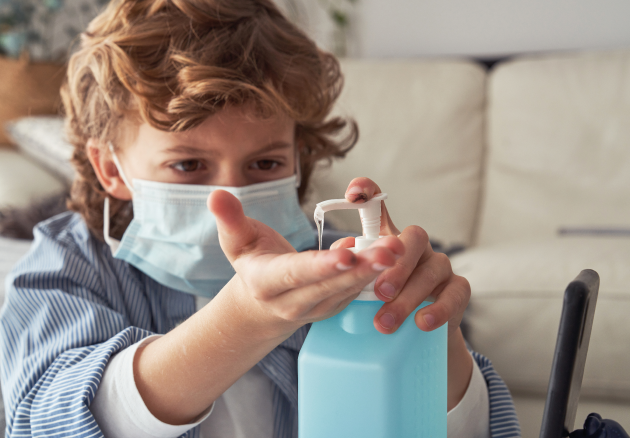Children and disinfectants: What you should know about safe use

Children and Disinfectants: What You Should Know About Safe Usage
The use of disinfectants has become an integral part of our daily lives, especially during times of increased health risks. However, handling disinfectants around children requires special care. In this article, you'll learn how to safely apply disinfectants for children and the precautions to take.
Why Extra Caution Is Needed for Children
Children have more sensitive skin and mucous membranes than adults, making them more prone to irritation and allergic reactions. They are also naturally curious and often have the habit of putting their hands in their mouths, which increases the risk of accidental ingestion of disinfectants. Therefore, it’s important to use disinfectants on children only under supervision and with caution.
Choosing the Right Disinfectant
Not all disinfectants are suitable for use with children. Products containing high alcohol levels or harsh chemicals can dry out or irritate children's skin. It’s advisable to choose mild, alcohol-free disinfectants that are specifically formulated for sensitive skin. Always read the labels and use only products that are explicitly approved for use with children.
Application Guidelines for Parents
Parents should keep disinfectants out of children's reach and use them only under supervision. Make sure that the disinfectant is fully absorbed into the skin before the child comes into contact with toys or food. It is also important to avoid bringing the disinfectant near the child's eyes or mouth to prevent irritation or accidental ingestion.
Handwashing Remains Essential
Although disinfectants provide a quick and easy solution, their use should not replace thorough handwashing with soap and water. Especially with children, handwashing should be the preferred method for removing dirt and germs. Disinfectants should only be used when washing with water and soap is not an option, such as when on the go.
Watch for Possible Reactions
After applying disinfectants, parents should be vigilant for signs of skin irritation or allergic reactions. These include redness, itching, swelling, or rashes. If such symptoms occur, use should be discontinued immediately, and a doctor should be consulted if necessary.
Preventing Accidental Ingestion
Young children tend to put things in their mouths, so disinfectants should always be stored out of their reach. If a child accidentally ingests disinfectant, immediate medical attention is necessary. If possible, bring the disinfectant packaging to the doctor to show the ingredients.
Education and Awareness
It is important to educate children about the proper use of disinfectants as soon as they are old enough to understand. Parents can explain why disinfectants are used and how to apply them safely. This helps raise awareness about hygiene while minimizing the risk of improper use.
Conclusion
Disinfectants can be a valuable tool in protecting children's health when used correctly. However, parents must always exercise caution and ensure that disinfectants are child-safe and applied properly. By combining disinfectants with regular handwashing and thoughtful education, parents can help protect their children from germs without compromising their health.


